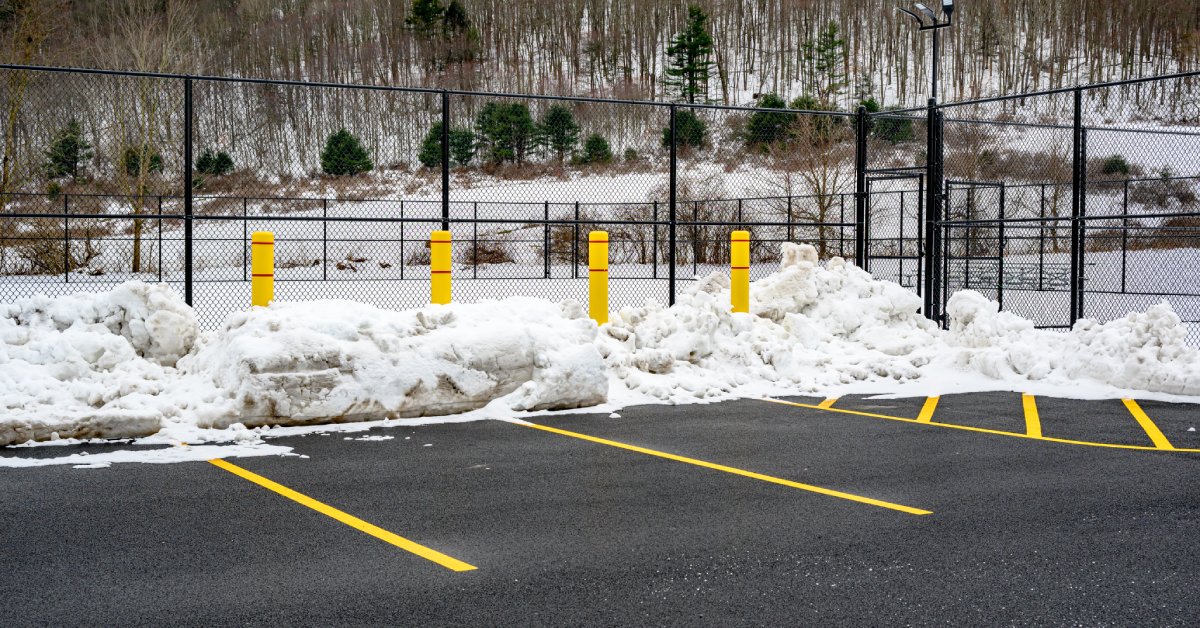
Snowand ice make parking a truck in winter a constant struggle. Icy lots, hidden snowbanks, and poorly lit spaces can turn a simple stop into a stressful or even dangerous situation. One wrong choice may leave you stuck, delayed, or financially strapped.
The good news is that smart parking habits help you stay on schedule, protect your rig, and make rest stops less stressful. With a little foresight and the right strategies, you’ll know how to choose safer spots, keep your equipment ready, and avoid the most common winter parking problems. In this guide, you’ll find helpful semi-truck parking tips for the winter months that every driver and small fleet can put to use right away.
Choose Parking Spots With Safety in Mind
To park safely, choose a spot that lowers your risks. Snow piles, unplowed lots, and poorly lit areas create hazards you might not notice until it’s too late. Uneven ground can cause trucks to slide, while dark spaces can attract theft or vandalism. Always look for firm ground with clear access, even if it forces you to walk further.
Truck stops and rest areas bring their own challenges. Spots that face downhill or are near snowbanks often turn into icy traps overnight. If you see slush or puddles during the day, expect solid ice by morning. Look for level ground to avoid tire damage and possibly needing a tow in the morning.
Fleet managers should remind drivers to check lot conditions before they settle into a space. Choose spots that allow a forward exit to improve visibility and reduce risk. Tight spaces on snowy lots increase the chance of accidents. Learn to find the safest available spot and practice good driving habits throughout the season.
Prepare Your Equipment and Surfaces
After you find a safe spot, check your gear to ensure everything is set up correctly. Carry wheel chocks, traction mats, and a sturdy shovel in your cab. Pack extra gloves, sand, windshield de-icer, and a small brush to clear snow from mirrors and ...
—
September 22nd, 2025